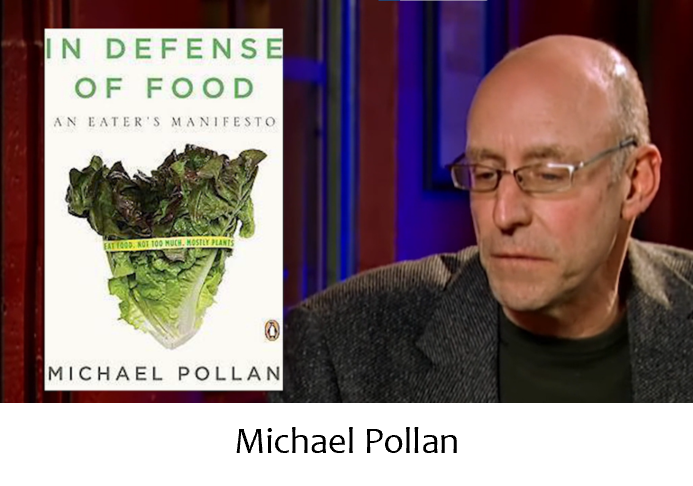Wait, Broccoli Is A System? A Primer on System-Thinking
(Prefer to watch rather than read? Click here, 5 mins with captions.)
“System-thinking”. It’s been around for decades and gets increasingly more popular as complexity ratchets up. But what does it mean?
Broccoli
I recently had 24 hours off life (I have three kids) and took the chance to read “In Defense of Food” by Michael Pollan, great writer from the New York Times. One piece stood out to me as a great way to explain systems thinking.
Pollan talks about “nutritionism”, the idea that we can work out what’s good in food by breaking it down to its component parts. Take broccoli – we generally consider that to be healthy, and you might know about anti-oxidants, those things that fight baddies inside us.
Here’s what’s interesting – when certain anti-oxidants are isolated, removed from the food and administered, they don’t always have the same healthy effect as when they are consumed as part of eating the vegetable. This means there’s something going on in the way the whole thing works together to create the healthy effect…broccoli is more than just a delivery system for anti-oxidants.
In other words…broccoli is a system!
Pollan gives us a quote from Marion Nestle, Professor of Nutrition, Food Studies and Public Health at New York University:
““The problem with nutrient-by-nutrient nutrition science is that it takes the nutrient out of the context of the food, the food out of the context of the diet, and the diet out of the context of the lifestyle.”
Marion Nestle
So not only are individual foods not just the sum of their parts, but these foods are also part of a wider system called “diet”, and this in turn is part of a wider system called lifestyle.
Systems-thinking means to view the whole thing as a swirling series of interactions that all impact each other to create the result…rather than seeing them as a series of isolated building blocks.
Now…this doesn’t mean we reject experts. You’re reading this right now on a screen thanks to experts. Scientific reductionism is brilliant. And we also need to see its limitations when we are looking to improve complex stuff.
Croissants for Everyone
Take the apparent ‘anomaly’ of the French diet, considered as such because despite lots of (awesome-tasting) buttery and rich foods, French people on the whole score better on health measures than Americans and Australians. Breaking down the individual nutritional components of the food gives us answers that don’t make sense – butter isn’t great, right?
However, if we look at the overall ‘system’ we start to see a bigger story. The lifestyle of French people around food is quite different to Americans and Australians. Snacks aren’t normal. Mealtimes go for longer, and food is appreciated as opposed to shoveled. And those mealtimes are often with larger groups, which sees strong family and friend connections which leads to other positive health outcomes.
Lets Look at Organisations
If you’ve been at work and alive over the last 10 years, you’ve seen the usual stuff come through. Six Sigma, ‘resilience’, a restructure or three, culture change (Human Synergistics anyone?). Like science, all of these are valuable. However…the use of any one of these implies a diagnosis has occurred, and a ‘solution’ found. The anti-oxidant has been identified, and now we need to take our medicine.
A systems view, however, will recognise that there is always a lot more in play than the one issue the new thing identifies. What this means practically is what the legendary Marvin Weisbord is known for, which is to “get the whole system in the room”. In other words, invite everyone involved in the diagnosis and in creating the solution to allow the full complexity to emerge.
“But that’s a lot of people” you are right to say. To which I say…”yes!” That’s where people like me come in to design process and facilitate to help both small and large groups to work through what they need to do to see and design a better future. If you have been lucky enough to a part of something great in your work, you will find there was a convening of some sort which got together the wider system.
The reason is worked is because it allowed the full system to emerge, and get connected.
Using the Value of Experts
And….we still need experts! Never reject expertise. What we do differently is the discoveries and advice of the experts are used by the whole system to better understand themselves and formulate actions. This is very different to what Weisbord calls the medical approach where people are made to ‘take their medicine’ after the expert advises.
I’ve advised in many restructures, and while it can often have value to do extensive interviews to discover how things appear from various angles, the most successful ones have consistently occurred when the wider group then get together as part of a workshop to go over and discuss my findings, then work out themselves how to organise their work.
You might think this would be uncomfortable and anxiety-producing. You’d be right. Which is why my facilitation and guidance focuses on helping the group understand and become comfortable with what they are experiencing so we can find our way to a design that suits their unique circumstances.
Bringing it Home
Broccoli is more than a delivery system for anti-oxidants, and individual people and teams are more than a delivery system for outputs. By seeing things as inter-related systems where the connections between parts create what we see more than any individual part, we give ourselves a much better chance of making a positive difference.
Get as much of the system into the room as you can.
And eat broccoli. With other good foods. Slowly. With people you like.
You know you should.



